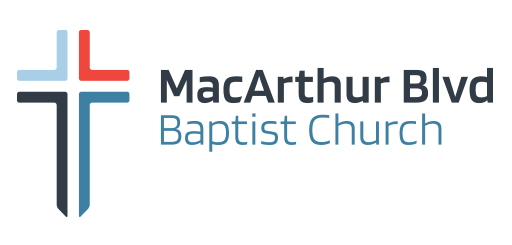Our Philosophy of Preaching
Why should you read an article about a philosophy of preaching? We live in a day when Christians have a wide variety of sermon options. This is a blessing and a curse. Unless you have thought carefully about the purpose and nature of preaching, you may find yourself choosing preachers who fit your own stylistic preferences rather than ones who rightly divide the word.
The purpose of this two-part series on Text-Driven Preaching is to clarify our own philosophy of preaching at MacArthur Blvd and to equip you to discern preaching that is biblically faithful versus preaching that is merely enjoyable. At MacArthur Blvd, we refer to our philosophy of preaching as “text-driven.” In this issue we define what text-driven preaching is and why it is a preferable approach. In part two, we look at other philosophies of preaching Christians may encounter and consider why this topic of a philosophy of preaching matters for all Christians.
Is this just another name for “expository” preaching?
If this is the first time you’ve heard the phrase “text-driven preaching,” the first question you may be asking yourself is: Isn’t this just another name for “expository” preaching? This may indeed be true, depending on how you define “expository preaching.”
The reason we prefer to refer to our philosophy of preaching as “text-driven,” rather than “expository,” is because expository preaching means different things to different people. For example, if you ask the typical church-attender to define expository preaching, his or her answer will likely sound like this: “Expository preaching is preaching that walks through books of the Bible, verse-by-verse.” While we firmly believe that walking verse-by-verse through books of the Bible is the healthiest approach, this is an inadequate definition for expository preaching. A preacher can preach through a biblical book verse-by-verse, and even anchor himself in a single passage each sermon, and still completely miss the point of the passage. This is not expository preaching. Moving through a book of the Bible verse-by-verse is a method of preaching, not a philosophy of preaching. To be sure, we believe a verse-by-verse method is healthiest, and it is the method we most commonly use at MacArthur Blvd, but we need to dig deeper for an adequate philosophy of preaching.
What is “text-driven” preaching?
Text-driven preaching can be defined as: The interpretation and communication of a biblical text in a sermon that re-presents the substance, structure, and spirit of the text. In other words, text-driven preaching allows the biblical text to drive the three major elements of a sermon: substance, structure, and spirit.
Text-Driven Substance:
“Substance” refers to the meaning of the text. In a text-driven sermon, the main idea of the text becomes the main idea of the sermon. Even a preacher who anchors himself in a single passage of Scripture can allow other agendas (e.g. theological, personal, political, etc.) to drive the substance of the sermon. In a text-driven sermon, the central idea of the text determines the central idea of the sermon. All other agendas, as noble as they may be, are left behind.
Text-Driven Structure:
A text-driven sermon also allows the structure of a text to shape the structure of the sermon. Some preachers have a sermon template that they employ every Sunday. This template typically consists of an introduction, three points, perhaps some application, and a conclusion. The problem with this approach is that not every passage contains three major points. While some passages may contain three points, others only have two primary points, and others may have four or more. Rather than force the passage into a precontrived sermon template, a text-driven sermon allows the very structure of the text to shape the structure of the sermon. A text-driven sermon conforms to the structure of the text rather than forcing the text to conform to the sermon.
Text-Driven Spirit:
Finally, a text-driven sermon allows the spirit of a text to determine the spirit of a sermon. By “spirit” we mean the tone or emotional design the author intended for the passage. Some passages whisper while other passages grab you by the shirt and shake you. Psalm 23, which says, “The Lord is my Shepherd; I shall not want…,” has a much different tone than Psalm 2, “You shall break them with a rod of iron and dash them in pieces like a potter’s vessel.” We believe that the tone of the passage should determine the tone of the sermon. If the passage has a tone of gentle consolation, then so should the sermon. If the passage has a tone of urgent warning, then so should the sermon. This requires the preacher to die to his own personality and to embrace the personality of the text. Some preachers only preach sermons that pat you on the head and tell you everything is going to be okay. Other preachers only preach sermons that slap you across the face and tell you to wake up. A text-driven preacher will not have only one kind of sermon because the spirit of the text will determine the spirit of the sermon.
Why is the text-driven philosophy preferable?
The text-driven philosophy is built upon our beliefs about the Bible. Our theology of Scripture determines our philosophy of preaching. We believe that the Bible is the ultimate authority for the Christian life. We believe it is without error and cannot fail. We believe it is sufficient to equip Christians for every good work. Therefore, we want to allow the Bible to drive our preaching ministry. The sermon only holds authority over the congregation insofar as it accurately reflects the meaning of the passage. So, we want the meaning of the passage to drive the substance of the sermon.
Furthermore, our philosophy of preaching acknowledges that we as pastors have deficiencies and blind spots. While there are certain topics we are very passionate about, there are other topics toward which we would never naturally gravitate. Therefore, if we always pick and choose the topic we want to preach on, we will certainly fail to provide our people with aspects of God’s word that they need. However, because we trust that the Bible is the word of God, we trust that God knows what our people need. And because we believe the Bible is sufficient, we believe that if we will commit ourselves to allowing the Bible to set the preaching agenda, our people will sufficiently receive all they need for spiritual growth.


